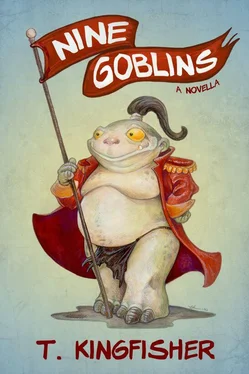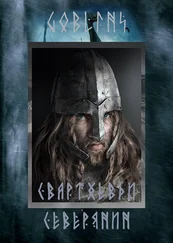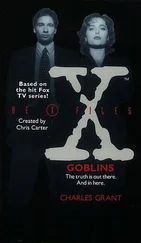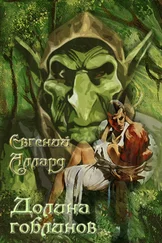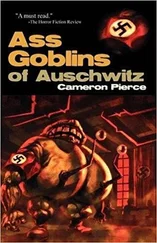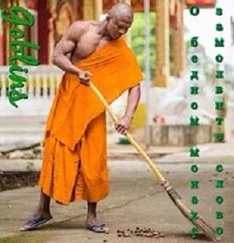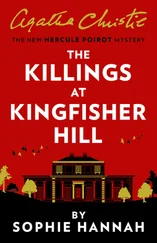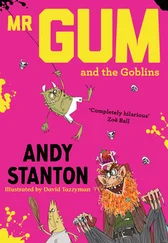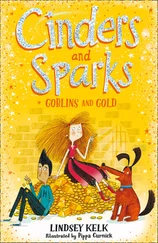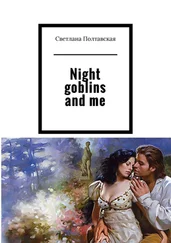T. Kingfisher - Nine Goblins
Здесь есть возможность читать онлайн «T. Kingfisher - Nine Goblins» весь текст электронной книги совершенно бесплатно (целиком полную версию без сокращений). В некоторых случаях можно слушать аудио, скачать через торрент в формате fb2 и присутствует краткое содержание. Год выпуска: 2013, ISBN: 2013, Издательство: Smashwords Edition, Жанр: Юмористическая фантастика, на английском языке. Описание произведения, (предисловие) а так же отзывы посетителей доступны на портале библиотеки ЛибКат.
- Название:Nine Goblins
- Автор:
- Издательство:Smashwords Edition
- Жанр:
- Год:2013
- ISBN:9781310505768
- Рейтинг книги:4 / 5. Голосов: 1
-
Избранное:Добавить в избранное
- Отзывы:
-
Ваша оценка:
- 80
- 1
- 2
- 3
- 4
- 5
Nine Goblins: краткое содержание, описание и аннотация
Предлагаем к чтению аннотацию, описание, краткое содержание или предисловие (зависит от того, что написал сам автор книги «Nine Goblins»). Если вы не нашли необходимую информацию о книге — напишите в комментариях, мы постараемся отыскать её.
Nine Goblins is a novella of low...very low...fantasy.
Nine Goblins — читать онлайн бесплатно полную книгу (весь текст) целиком
Ниже представлен текст книги, разбитый по страницам. Система сохранения места последней прочитанной страницы, позволяет с удобством читать онлайн бесплатно книгу «Nine Goblins», без необходимости каждый раз заново искать на чём Вы остановились. Поставьте закладку, и сможете в любой момент перейти на страницу, на которой закончили чтение.
Интервал:
Закладка:
Elf and raccoon shared a pleasant breakfast. It was a little over a month old—the raccoon, not the breakfast—with big, wide eyes and delicate, dexterous black fingers, and it was shortly going to be tearing his house apart. The destructive capacity of small cute animals was really quite astonishing. Fortunately, after years of this sort of thing, Sings no longer had much that could be torn apart. His furniture was heavy wood, scarred by claws and chewed by tiny (and occasionally not so tiny) teeth, the cushions faded by hundreds of washings, the rugs ragged and warm and mostly colorless.
He owned quite a few rugs. He had to wash them so often that it made sense to keep extras. An elven visitor had once commented (with the air of one desperately trying to find something complimentary to say) about the unusual patterns dyed into the rug. Sings-to-Trees had to explain that it wasn’t dyed, precisely, but marked by numerous Mystery Stains from patients who had not been entirely in control of their bladders. The silence had been awkward.
He suspected the other elf had been expecting something on the order of a hermit monk, communing with nature and binding up the wings of snow-white doves with snow-white bandages, not a bedraggled lunatic daubed with unspeakable substances, surrounded by shrieking birds, and massaging the belly of a tiny lynx kitten to make it defecate. (In Sings-to-Trees’ defense, it had been a particularly insane week, with two lynx kittens, a nestful of orphaned gray jays, an infant false-phoenix that kept exploding into flames when startled, and a pine marten with a broken foot, who would have happily eaten any of the other patients if he could catch them.) The other elf hadn’t been back.
The raccoon trundled away from its food, stood up briefly on its hind legs, wobbled, and tried to steady itself against his mug. The mug went over. The raccoon also went over. He could only catch one, and of course, there was no question.
The raccoon snuggled against his chest and went “Clur-r-r-p!” The mug went “plunk!” The buttermilk went into his lap.
“Bad raccoon.”
“Clurr-up!”
Well, it was his own fault for trying to feed himself and the creatures at the same time. The raccoon cub went back into its hutch by the hearth. He toweled off the worst of the buttermilk, and then the remains of the raccoon’s breakfast. The mug had survived intact.
Had he been inclined to collect blown glass sculptures, he would have lived a life of great frustration, but his tastes had been limited by necessity to things that could take a heavy pounding. The mug, for example, was attractively glazed earthenware—pretty enough, but durable, and easily replaced if, say, a raccoon got into a cupboard, had the door swing shut behind it, and tried to smash its way out.
Unfortunately, this meant that there was very little elven about his home, as durability went somewhat against the prevailing elven aesthetic of things brought briefly from the earth, and then given back. A litter of fox cubs could give things back to the earth at an extraordinary rate, generally before the owner was quite done with them. Sings resigned himself to art made by humans and occasionally dwarves. As sacrifices went, he’d made worse.
Speaking of sacrifices…
He dumped the mug in the washbasin, shoved his feet into boots, squared his shoulders, and went to see if the unicorn was still there.
FIVE
“Two weeks of boot camp, eh?” said Algol. He was digging in the pack goat’s packs until he came up with a dubious bit of steak left over from the elephant (or possibly Blockhammer). “Here, put this on your eye.”
The steak was cold, thanks to Murray. He had invented a device that kept meat cold, a small box with a fan and little metal wings. He claimed the wings dispersed heat. Most of the other goblins thought he was loony, but Algol had made an effort to understand. “Like birds!” he’d said.
Murray had stared at him, wiping sweat from under his goggles.
“Hot air rises,” Algol tried to explain, “so birds must be hot, because they fly. The wings cool them down so they can land without floating away.”
“Riiiiight,” Murray had said. “Ah…yeah. Just like that. How… novel of you to figure that out.”
Algol was proud.
Mushkin put the steak on his eye. Mishkin hovered nervously. “Will he be okay? Should he go to the medics?”
“You in a big hurry to lose the eye?” asked Algol mildly. “Keep the steak on it, you’ll be fine.” He had figured out that the best way to deal with the twins was to address them as one goblin with four arms and two heads.
“This is Buttercup.” Algol nodded to the supply goat.
“Hi, Buttercup!” the twins chorused.
Up ahead, Sergeant Nessilka cringed. Why had she let him name the goat? You shouldn’t name the goat. It was just “the goat.” If food got scarce enough, you ate the goat, and that was much harder when it had a name.
Algol was a good goblin, and a fairly reliable corporal, but he had some odd blind spots, often where animals were involved.
“Now then. Boot camp. Kill a lot of straw men?”
“Yes, Algol!”
“S’fine if we’re fighting scarecrows, I s’pose. Unfortunately, we’re fighting elves. You ever seen an elf?”
“No…”
“We heard they were eight feet tall and breathed fire from their nostrils!” said Mushkin from under his steak.
“Generally not, no.”
The average elf, the corporal explained, was a little under six feet tall, with pasty skin like a mushroom and long, pointy ears like a mule. “They’re fast, see? Not goblin fast, but quick as weasels. And they have really good weapons. Loot their weapons if you get a chance.” He patted the sword at his side. It had runes like wriggling worms all down the length, which Murray said meant “Blade that Dances in the Houses of the Moon” in Elven.
Algol called it “Bob,” after his goldfish back home.
“If you loot their packs, they’ve usually got decent vittles, too. Vegetarian, but it’s good in stew. Their armor doesn’t fit us for beans, so don’t bother.”
Mishkin and Mushkin listened with round eyes, absorbing it all.
“Now, if we get in a fight—err—”
He looked at the twins. They looked back guilelessly. Algol sighed.
“If we get in a fight, try to stay close to me.”
He wracked his brain.
“They’re all a lot taller than we are, so go for the legs. Hardly anybody has any armor on the back of their knees. We’ll try to find you a shield. Hold the shield over your head, and go for the knees.”
“Always go for the knees…”
Always go for the knees was, in fact, the family motto of Clan Uggersplut, to which Algol belonged in a roundabout fashion involving several second cousins and a yak.
Uggersplut, as it happened, was also the clan to which the most competent of the ranking generals of the goblin army also belonged.
It had been the scions of Uggersplut who carried the demands of the goblins to the humans, long ago, at the start of the war.
Goblins, much like rats, prefer to flee, but when they’re cornered…well. When the goblin scout had arrived on the shore of the western sea, the goblin tribes had turned, all together, like an enormous green rat at bay, and bared their collective teeth.
So the goblin leaders sat down, in the mountain called Goblinhome—half city, half refugee camp—and talked for three days and two nights. As the sun set on the third day, they signed the large warthog hide on which their demands were written. Then they drew straws for who would carry it to the humans.
Clan Uggersplut had drawn the short straw.
Mounted on their best steeds, their faces marked with elaborate tribal patterns in black earth, coup markers braided into their hair, Uggersplut rode down from the mountains to the largest of the nearby human settlements. Single-file, heads held high, they rode through the center of the town, and stopped in the central square, and demanded to see the leader of the town.
Читать дальшеИнтервал:
Закладка:
Похожие книги на «Nine Goblins»
Представляем Вашему вниманию похожие книги на «Nine Goblins» списком для выбора. Мы отобрали схожую по названию и смыслу литературу в надежде предоставить читателям больше вариантов отыскать новые, интересные, ещё непрочитанные произведения.
Обсуждение, отзывы о книге «Nine Goblins» и просто собственные мнения читателей. Оставьте ваши комментарии, напишите, что Вы думаете о произведении, его смысле или главных героях. Укажите что конкретно понравилось, а что нет, и почему Вы так считаете.
